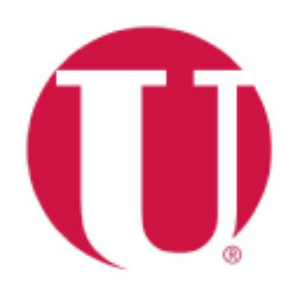78% of Businesses Are Investing in GenAI -- but Just 36% have the Infrastructure to Support It, New Unisys Study Finds
Rhea-AI Summary
Unisys (NYSE: UIS) has released a global study revealing a significant gap between organizations' technological ambitions and their infrastructure readiness. The research, surveying 1,000 C-Suite and IT executives across eight markets, found that while 78% of organizations plan to increase investment in generative AI, only 36% are prepared to support large-scale AI workloads.
Key findings show that 82% of executives view cloud and IT as profit centers, yet fewer than half are satisfied with ROI on cloud, automation, and GenAI investments. Critically, 85% of organizations describe their cybersecurity as reactive, with breach-related downtime costs reaching $500,000 per hour. Only 14% of executives report readiness for post-quantum cryptography, highlighting significant security vulnerabilities.
Positive
- None.
Negative
- Only 36% of organizations are ready to support large-scale AI workloads
- 85% of organizations have reactive rather than proactive cybersecurity
- 17% of organizations experienced a breach with downtime costs up to $500,000 per hour
- Only 14% of systems are prepared for post-quantum cryptography
- Less than half of executives are satisfied with ROI on cloud, automation, and GenAI investments
Insights
Unisys report reveals critical gap between AI investment ambitions and infrastructure readiness, highlighting potential market opportunities in IT modernization.
Unisys's new global study exposes a significant disconnect in the technology ecosystem that investors should note. While 78% of organizations plan to increase generative AI investments and 73% view agentic AI as competitively crucial, a mere 36% have infrastructure capable of supporting large-scale AI workloads. This gap represents both a market inefficiency and potential opportunity in the IT modernization space.
The research identifies several concerning trends: organizations continuing to invest heavily in emerging technologies despite less than half of executives being satisfied with current ROI, widespread infrastructure inadequacy for supporting quantum computing (32% readiness) and edge computing (34% readiness), and alarming cybersecurity vulnerabilities with 85% of organizations maintaining reactive security postures.
The findings highlight a persistent disconnect between technology aspirations and implementation capabilities that hasn't improved since Unisys's 2023 survey. This suggests a potential market correction ahead – either through increased spending on infrastructure modernization or scaled-back expectations for AI implementation timelines.
For Unisys specifically, this research positions them strategically in the market as thought leaders identifying critical gaps that their services could address. The identification of "Innovation Leaders" – organizations successfully aligning infrastructure with emerging tech adoption – suggests Unisys is developing frameworks to help clients bridge these divides. The company appears to be establishing itself as a consultant for the AI transition rather than just a technology provider, potentially expanding its addressable market.
The cybersecurity findings are particularly notable, with 17% of organizations experiencing breaches costing up to
Despite surging interest in emerging technology, most organizations lack the IT core to support innovation, risking ROI and security
The research reveals several key insights, including:
78% of organizations plan to increase investment in genAI, while73% of business executives view agentic AI as critical to staying competitive.- Yet only
36% say they are ready to support large-scale AI workloads. 82% of business executives view cloud and IT as profit centers. While fewer than half of business executives are fully satisfied with the ROI on cloud, automation, and genAI, three-quarters are still increasing their investments.- Most organizations are ill-equipped for modern cyber threats, and only
14% of business executives say they're prepared for post-quantum cryptography. 85% of organizations describe their cybersecurity posture as reactive, even as the cost of downtime continues to rise drastically.
"The next wave of technological disruption is already underway, yet many organizations are still operating on outdated foundations and processes," said Manju Naglapur, senior vice president and general manager of Cloud, Applications & Infrastructure solutions at Unisys. "To fully realize the potential of technologies like generative and agentic AI, organizations need to modernize their infrastructure, align IT and business priorities, and adopt a more proactive approach to cybersecurity."
Organizations Double Down on Emerging Tech to Stay Competitive
Business executives increasingly view technologies like agentic AI, quantum computing, and genAI as essential to long-term success. Nearly three-quarters (
Outdated Infrastructure Slows AI and Quantum Adoption
While organizations are making bold investments in emerging technologies, many acknowledge that their current infrastructure falls short. Astonishingly, this has not changed since Unisys last surveyed organizations in 2023, finding that outdated infrastructure, talent shortages, and a lack of alignment between business and IT were on the list of the top five cloud challenges. These challenges remain top of mind, despite the rapid adoption of emerging technologies such as AI, and in 2025, only
These insights indicate that more attention must be directed towards finding solutions in these areas. To realize the full value of these technologies, organizations must modernize their infrastructure and better align their IT capabilities and needs with business priorities.
Reactive Cybersecurity Leaves Organizations Exposed
The cloud readiness gap isn't just slowing innovation — it's exposing organizations to serious security and financial risks. In the past year,
Despite the risks,
Click here to view the full findings of the report.
About Unisys
Unisys is a global technology solutions company that powers breakthroughs for the world's leading organizations. Our solutions – cloud, AI, digital workplace, logistics and enterprise computing – help our clients challenge the status quo and unlock their full potential. To learn how we have been helping clients push what's possible for more than 150 years, visit unisys.com and follow us on LinkedIn.
RELEASE NO.: 0819/10011
Unisys and other Unisys products and services mentioned herein, as well as their respective logos, are trademarks or registered trademarks of Unisys Corporation. Any other brand or product referenced herein is acknowledged to be a trademark or registered trademark of its respective holder.
UIS-C
![]() View original content to download multimedia:https://www.prnewswire.com/news-releases/78-of-businesses-are-investing-in-genai--but-just-36-have-the-infrastructure-to-support-it-new-unisys-study-finds-302533124.html
View original content to download multimedia:https://www.prnewswire.com/news-releases/78-of-businesses-are-investing-in-genai--but-just-36-have-the-infrastructure-to-support-it-new-unisys-study-finds-302533124.html
SOURCE Unisys Corporation









